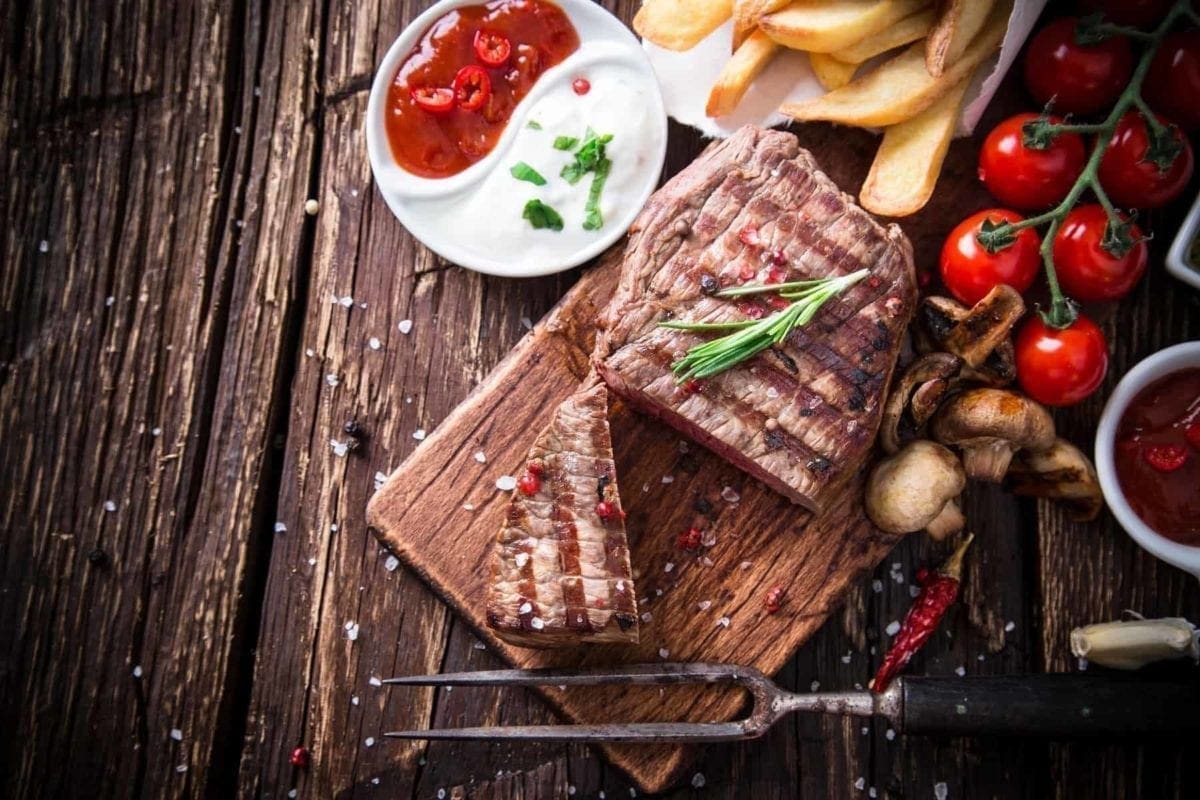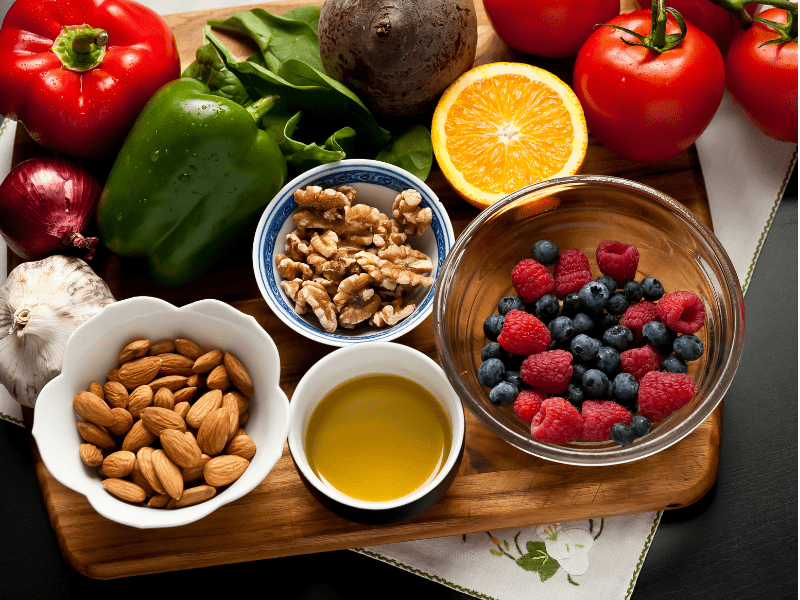
Sunscreen - protection from the rays from the sun.
Common consensus is that we must stop the harmful radiation from the sun (which converts to Vitamin D when absorbed by the skin) by covering our bodies in toxic chemicals that are absorbed into the skin and stop the creation of Vitamin D.
However, there are ways to prevent burning (which is what the sunscreens are supposed to do) without exposing our bodies to toxic chemicals.
I rarely burn, even when I was in Florida in the late spring, which when is it is easiest to get burned, I got a nice tan. I didn't use sunscreen, and I didn't limit my time outside. The same when working outside in the garden with no shirt for four or 5 hours. No burn, maybe slightly red, but tanned the next day.
Why is it I don't burn while others around me do if they don't slather on the sunscreen? Good nutrition.
Here are my 6 Best Ways to get Natural Sunscreen Protection:
1. No- or minimally- processed food
Eating real food, that is food that has had no or very little processing promotes healthy skin and bones and is anti-inflammatory. These foods also contain a lot of micronutrients that more processed foods lack or manufacturers add back in.

High and ultra-processed foods irritate the gut which effects every other part of the body including your skin. They also make you fat and don't contain the vitamins and minerals your body needs to be healthy.
Avoid sugar, grains and vegetable oils for overall good health, including your skin.
Eat lots of pastured beef, chicken, turkey, eggs, lots of green veggies, and tomatoes (it's a fruit)

2. Healthy Fats
Eating healthy fats from fatty fish like salmon or other fatty meats, olive oil, or a handful of nuts. Avoid things like margarine (a trans-fat), poly-unsaturated fats, and fats high in Omega-6. Omega-6 is okay in and of itself; the problem is we get too much of it and too few Omega-3s. Ideally, we would eat the same amount of both, but the Standard American Diet (SAD) is very high in Omega-6s and low in Omega-3s.
3. Anti-oxidants
Anti-oxidants reduce inflammation and free radicals. I like to think of anti-oxidants as rust prevention for the body. Oxidation is rusting like a nail rusting, and your body also oxidizes things. Oxidation in the body is natural; it is supposed to occur. However, too much oxidation causes free radicals, which cause inflammation and other issues.
So, to keep from rusting on the inside, eat lots of berries, dark chocolate (organic only - not Dove, Ghirardelli, or Nestle's), pecans, beets, kale, and red cabbage.


4. Get your Vitamin D levels checked
Yes your body converts sunlight into Vitamin D, but you need to get full body exposure at least 30 minutes a day when the sun is at it's brightest for your body to produce adequate amounts of D.
If you live on the equator you're probably good to go. But if you live in the northern latitudes you are most likely deficient in Vitamin D. You blood level should be about 60mg/dL and the only way to know is through blood work.
How does Vitamin D prevent sunburn? By increasing the amount of melanin your skin produces. Melanin is what make your skin darken. Melanin is your natural sun-block and taking Vitamin D will help your body produce melanin faster which will prevent burning. This means you tan faster than someone with lower Vitamin D levels.
If you have darker skin you need more sunlight exposure or make sure you are supplementing. Your body can't create the necessary amount of Vitamin D because your darker skin blocks the UV rays from penetrating your skin.
5. Gradually increase sun exposure
Don't go from being indoors to all day on the beach in the Bahamas in one day. You WILL get burned even if you follow the above four recommendations! Ease into it. If you know you are going on a cruise in the Caribbean, go to a tanning bed two or 3 times a week and gradually increase the time you spend under the lamps. This will increase your Vitamin D and melanin and better prepare your body for the intense levels of UV exposure that you can't get in North America. Even if you live in South Florida, you need to prepare for the equatorial levels of UV. They are much higher.
6. Supplements
I've repeatedly mentioned Vitamin D supplementation but there are others that can help protect your skin. One caveat with Vitamin D supplementation. You must take Vitamin K2 with it. Some brands of D3 contain K2, others don't so read the label. D3 tends to pull calcium from the bones and it tends to get into our soft tissues like the hair, skin. High doses of D3 without K2 can also lead to kidney stones calcification of the arteries causing blockages and heart attacks!

Other supplements for skin and overall health include:
- Vitamin C - it's an antioxidant. I take 1600 - 2,000mg/day
- Fish Oil - if you don't like fish, or don't eat enough, supplement with a good quality fish oil like Vital Nutrients Ultra Pure Fish Oil 800
- Polypodium leucotomos - an antioxidant which comes from a tropical fern native to the Americas. Taking supplements or using topical creams made from the plant is thought to help treat inflammatory skin conditions and protect against sun damage.
To get any or all of the recommended supplements check out my Fullscript Page and get 20% off retail prices! Please note that will you need to login to your Fullscript account or create one before you can order the supplements
Here's a Smoothie that can help protect your skin. It has some of the things I discussed above and some that I didn't cover.
Directions
Place ingredients in a blender. Blend until smooth. For a thicker smoothie, use 1 cup green tea.
While these nutrient-rich, whole foods may support the health of your skin when exposed to UV light.
If you decide not to follow any of the above recommendations or know you will be in the full sun for long periods but didn't have time to prepare, go to the Environmental Working Group site EWG.org for natural sunscreen creams.


